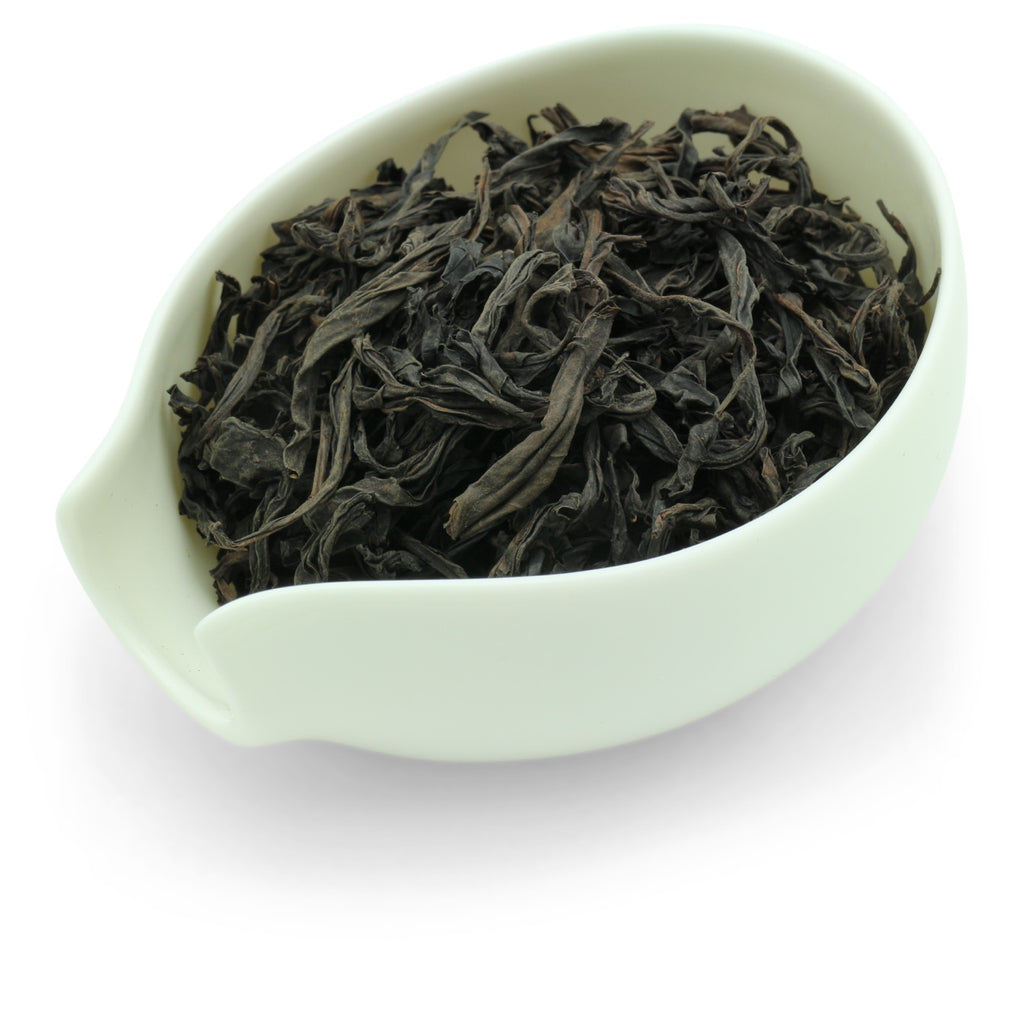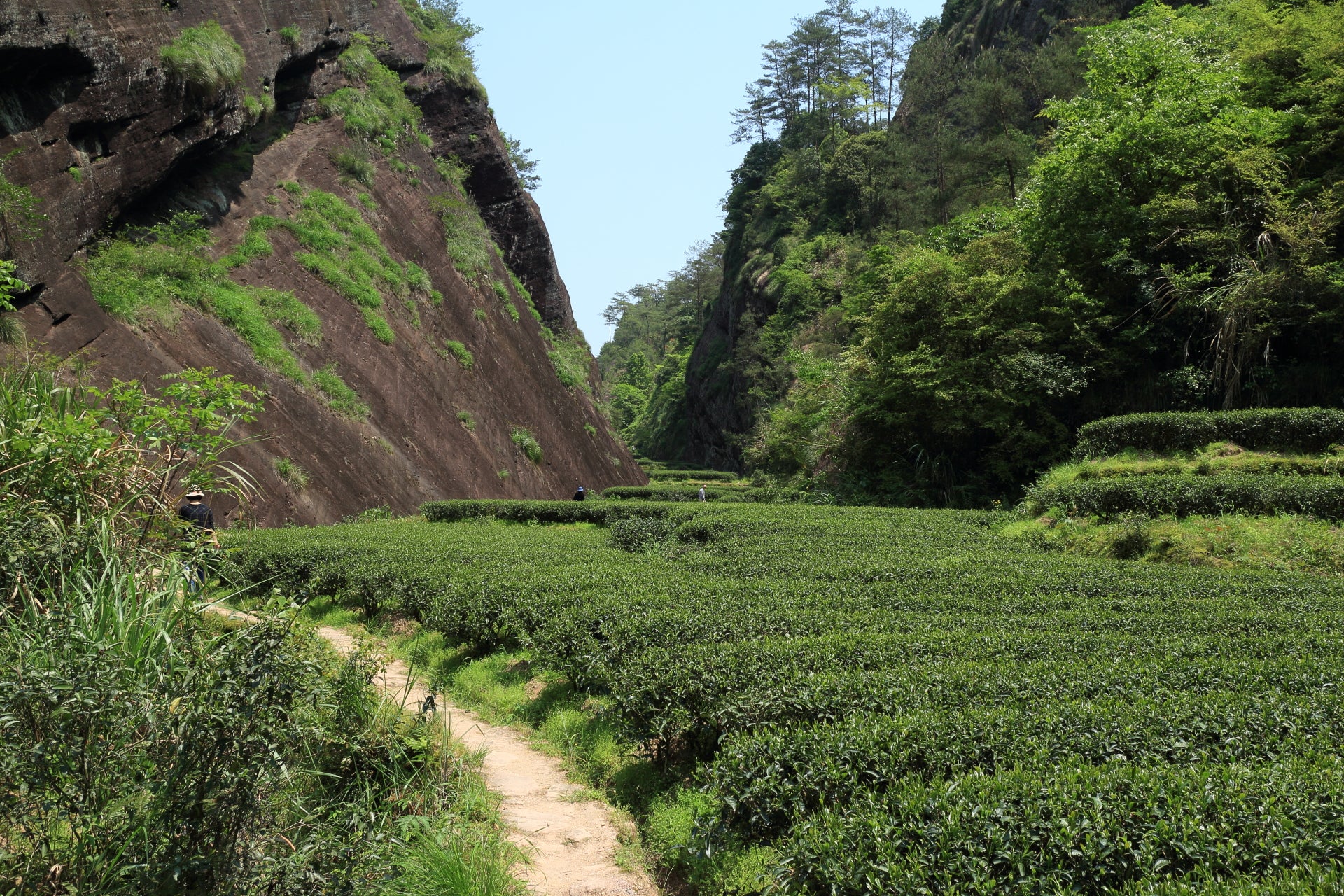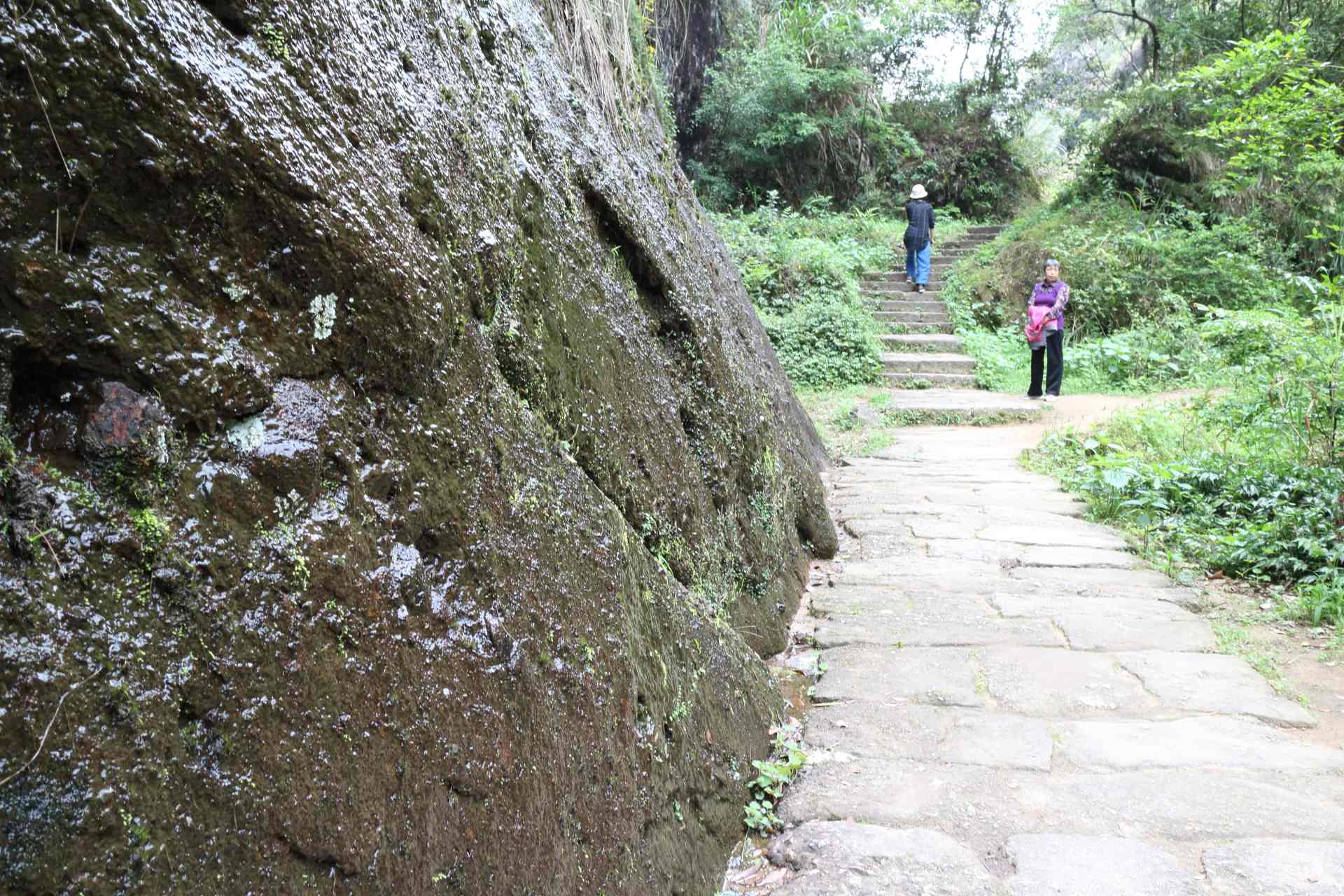Qi Lan
Galgant und geröstete Kokosnuss begrüßen die Nase bei diesem Qi Lan und lassen fast an ein herzhaftes Curry denken, doch der Körper des Likörs ist absolut ausgewogen, mit mäßiger Fruchtigkeit und einem Hauch von Gewürzen. Warten Sie jedoch auf das Hui Gan - ahh, eine Eruption von Pfirsich, die sich nach einem einzigen Schluck minutenlang am Gaumen niederschlägt. Die Magie, die die Sorte “Merkwürdige Orchidee " ausübt, ist in jeder Inkarnation (und bei jeder Verarbeitung) ein wenig anders, aber sie bringt durchweg eine schöne Blumigkeit mit sich; dieser Tee ist ein perfekter Yancha für diejenigen, die das ganze Aroma, das die Röstung hervorbringen kann, mit nur einem Hauch seines Geschmacks haben wollen.
- HERKUNFT: Dashuikeng, Wuyishan, Fujian, China
- WAS DER NAME BEDEUTET: Seltene Orchidee (qi lan)
- ZÜCHTUNG: Qi Lan
- GEERNTET AM: 20. April 2022
- GESCHMACK: Pfirsich, Galgant, Orchidee
- Menge: 6g / 500ml
- Wassertemperatur: 90°C
- Ziehzeit: 4 Min.
- Menge: 3g / 100ml
- Wassertemperatur: 90°C
- 4 Aufgüsse: 45, 60, 60,90 Sek.
Die besten Ergebnisse beim Gongfu Cha erzielen Sie, wenn Sie den Tee im traditionellen Gaiwan oder in einer Yixing-Teekanne zubereiten. Eine zu hohe Wassertemperatur könnte die Blätter verbrennen und zu einem bitteren Geschmack führen.
Zusätzliche Informationen
Authentic Wuyi Yan Cha is produced in the Wuyi Mount region, a UNESCO natural heritage site. The dramatic gorges of the Nine Bend River are surrounded by a largely intact subtropical forest and smooth cliffs of black-brownish rocks. The tea plants grow in narrow valleys, next to the cliffs, in a mineral-rich soil.
Today Wuyi Yan Cha is one of the most valued teas in China. Because it has become a status symbol, many wealthy Chinese are willing to pay a fortune for it without even knowing how a proper Wuyi Yan Cha should taste. The result has been prices inflating to unjustified level and quality often sacrificed for quantity.
Unique to the Wuyi Yan Cha is a mineral savor coming from the soil and the surrounding cliffs. Being the oolong with the highest fire finish, fresh Yan Cha may as a result be strong and pungent. Sharpness and too-prominent astringency subside upon ageing. Premium high-fire Yan Cha tastes better after a few years of storage. Use a Yixing teapot to soften the tea, should it be too astringent for your palate.
The overall tasting profile is rich, complex, and deep. Depending on cultivar and environment, the mineral-roasted flavor is refined by floral, fruity, nutty or woody accents.










